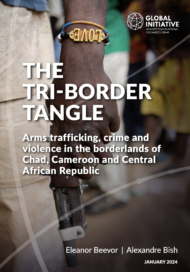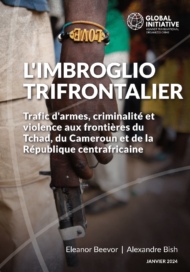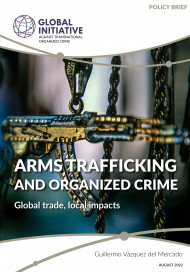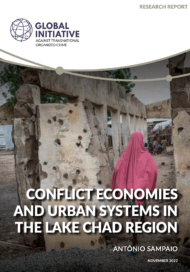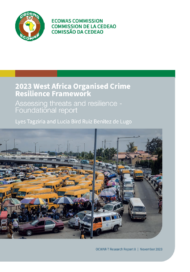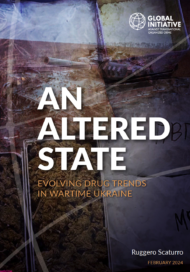Posted on 09 Jan 2024
The tri-border area of Chad, Cameroon and the Central African Republic (CAR) is one of the least-studied borderland regions of West Africa, despite its growing strategic importance. Following the 2023 coup in Niger and ongoing instability in Libya, Sudan, and the Lake Chad Basin, Cameroon now serves as the main trade route for Chad and CAR. Any further destabilization could have severe economic consequences for the entire region. This report presents a snapshot of arms trafficking and the violence that follows in these countries.
Unfortunately, the extent of illicit activity in the area increases this risk of further destabilization. The confluence of international borders offers myriad opportunities to profit from illicit activities and to exploit the relatively open crossings to evade authorities. In terms of conflict dynamics, this report identifies an increased displacement of violence by non-state armed groups over the tri-border region’s borders. Armed groups from western CAR have taken to using the border regions of eastern Cameroon as a rear base, under pressure from the military and Wagner Group activity in the CAR. Likewise, southern Chadian armed groups have made multiple incursions into northern CAR because of military pressures.
The collected evidence in this report points to an apparent growth in the use of small arms and light weapons (SALW) in violent crime, which can exacerbate armed conflicts and militarize existing socio-economic divides. Arms trafficking often begets other forms of violent crime, which are enabled by greater access to weaponry. The clustering of different types of violent crime – especially prolific and large-scale kidnappings and cattle rustling – in areas with high levels of arms trafficking is a pattern that has been identified across other hotspots of illicit economic activity.
This report finds that the perpetrators of these crimes have often been armed forces personnel, members of rebel groups, or vigilantes who use their easy access to weapons to moonlight as criminal actors. This makes identifying the precise perpetrators extremely difficult and makes such crime exceptionally difficult to tackle. But there is also evidence of a growing professionalization of violent crime in the area. As a result, violence in the tri-border region is at high risk of becoming self-perpetuating.
In addition to reviewing relevant academic and grey literature, this research draws on in-person and remote interviews with 36 stakeholders in northern Cameroon, north-western CAR and southern Chad. The stakeholders interviewed in the region included army officers, officials, cattle herders, farmers, traders, drivers, journalists, arms traders and researchers. Interviews were conducted between November 2022 and August 2023, with a mix of semi-structured interviews, structured questionnaire-based interviews and triangulation with additional sources.
The report includes a visual component featuring photographs of SALW provided by intermediaries from clandestine arms shops. Collaborating with Conflict Armament Research, GI-TOC researchers analyzed these images to identify a sample of the weapons currently available in the tri-border region.
